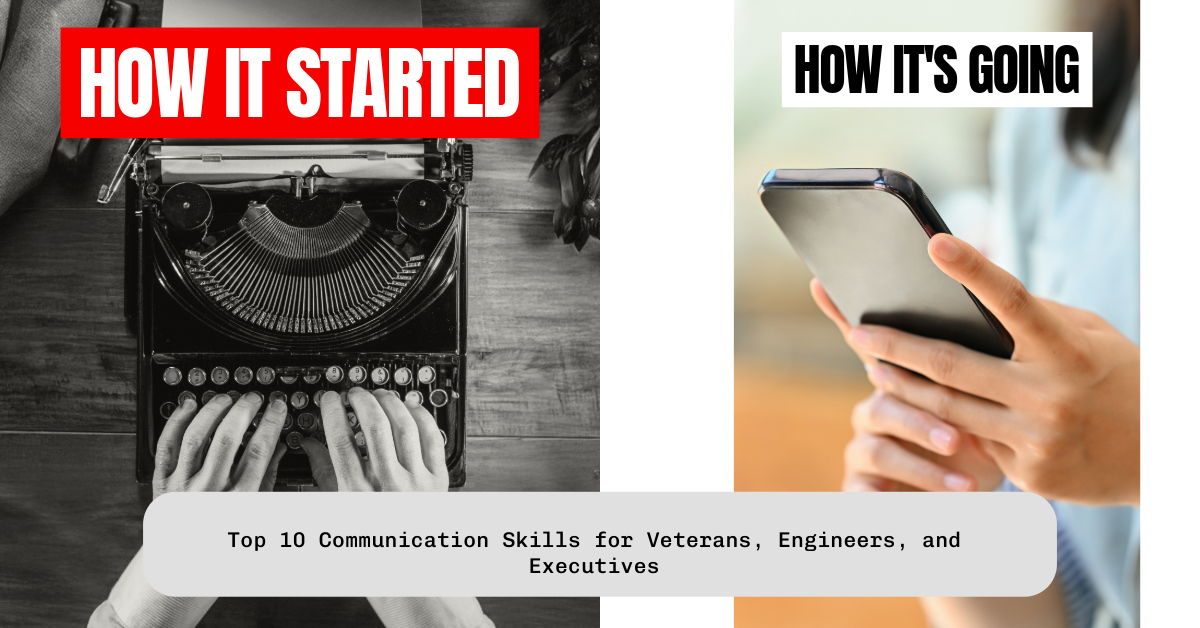In the professional world, the ability to communicate effectively in front of an audience is a crucial skill that can open doors to new opportunities and career advancement. For veterans transitioning into engineering roles and engineers aspiring to leadership positions, mastering public speaking is essential for conveying ideas, inspiring teams, and influencing stakeholders. This article explores the importance of public speaking, its benefits, and practical strategies to develop this skill, with a focus on coaching veterans and engineers.
Understanding Public Speaking
Public speaking involves delivering a message to an audience in a clear, engaging, and persuasive manner. It requires confidence, clarity, and the ability to connect with listeners. For veterans and engineers, who often work in technical fields, public speaking can enhance their ability to share complex information, lead teams, and advocate for their ideas.
The Importance of Public Speaking for Veterans
Veterans bring a wealth of experience and leadership skills to the civilian workforce, but transitioning from a military to a civilian career can present communication challenges. Public speaking helps veterans effectively articulate their experiences and ideas, making it easier to connect with colleagues and stakeholders.
Key benefits of public speaking for veterans include:
- Leadership Development: Public speaking enhances leadership skills by building confidence and the ability to influence others.
- Career Advancement: Effective communication can lead to new opportunities and career growth in civilian roles.
- Successful Transition: Public speaking aids in adapting to new environments and roles, facilitating a smoother transition from military to civilian careers.
The Role of Public Speaking in Engineering
Engineers are often tasked with presenting complex technical information to diverse audiences, including clients, team members, and executives. Public speaking is a critical skill that enhances their ability to convey technical concepts and collaborate effectively.
Key benefits of public speaking for engineers include:
- Improved Communication: Public speaking ensures that technical information is conveyed clearly and effectively to non-technical audiences.
- Effective Leadership: Engineers aspiring to leadership roles can use public speaking to inspire and guide their teams.
- Enhanced Client Relations: Presenting technical information confidently to clients leads to better project outcomes and customer satisfaction.
Strategies for Developing Public Speaking Skills
- Understand Your Audience: Tailor your message to the needs and expectations of your audience. Consider their level of expertise and familiarity with the subject matter.
- Organize Your Content: Structure your presentation logically, with a clear introduction, body, and conclusion. Use storytelling to engage your audience and make your message memorable.
- Practice Regularly: Like any skill, public speaking improves with practice. Rehearse your presentation multiple times to build confidence and refine your delivery.
- Focus on Clarity: Use simple language and avoid jargon to ensure that your message is easily understood. Speak clearly and at a moderate pace.
- Engage Your Audience: Use eye contact, gestures, and vocal variety to maintain your audience’s attention and interest. Encourage interaction through questions and discussions.
- Manage Anxiety: Public speaking can be nerve-wracking, but techniques such as deep breathing, visualization, and positive self-talk can help manage anxiety.
- Seek Feedback: After your presentation, seek feedback from colleagues or mentors to identify areas for improvement and build on your strengths.
Coaching Veterans and Engineers in Public Speaking
Coaching programs tailored for veterans and engineers can play a pivotal role in developing public speaking skills. These programs should focus on:
- Customized Training: Addressing the unique communication challenges faced by veterans and engineers through targeted workshops and exercises.
- Mentorship Opportunities: Pairing participants with experienced mentors who can provide guidance and feedback on public speaking practices.
- Real-World Scenarios: Incorporating simulations and role-playing exercises that mimic real-world situations to practice public speaking in a safe environment.
- Continuous Feedback: Providing ongoing feedback and support to reinforce learning and encourage skill development.
Conclusion
Public speaking is a powerful tool that can transform the way veterans and engineers communicate and lead. By mastering this skill, they can enhance collaboration, improve project outcomes, and drive innovation in their respective fields. As the demand for effective communication continues to grow, investing in public speaking will undoubtedly yield significant returns for individuals and organizations alike.
For veterans transitioning to engineering roles and engineers aspiring to leadership positions, public speaking is not just a skill—it’s a pathway to success. By embracing this practice, they can unlock their full potential and make a lasting impact in their careers and communities.
By focusing on public speaking, veterans and engineers can enhance their communication abilities, paving the way for successful transitions and leadership opportunities. Whether you’re a veteran entering the engineering field or an engineer looking to advance your career, mastering public speaking is a crucial step toward achieving your goals.
